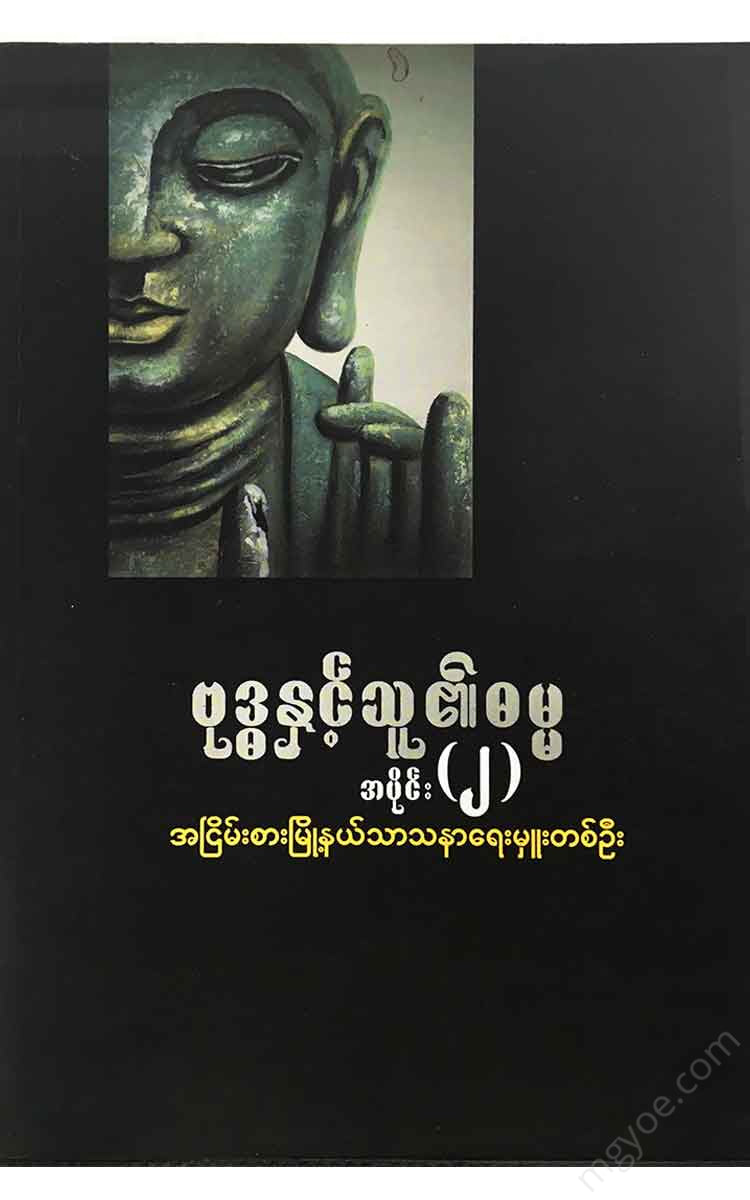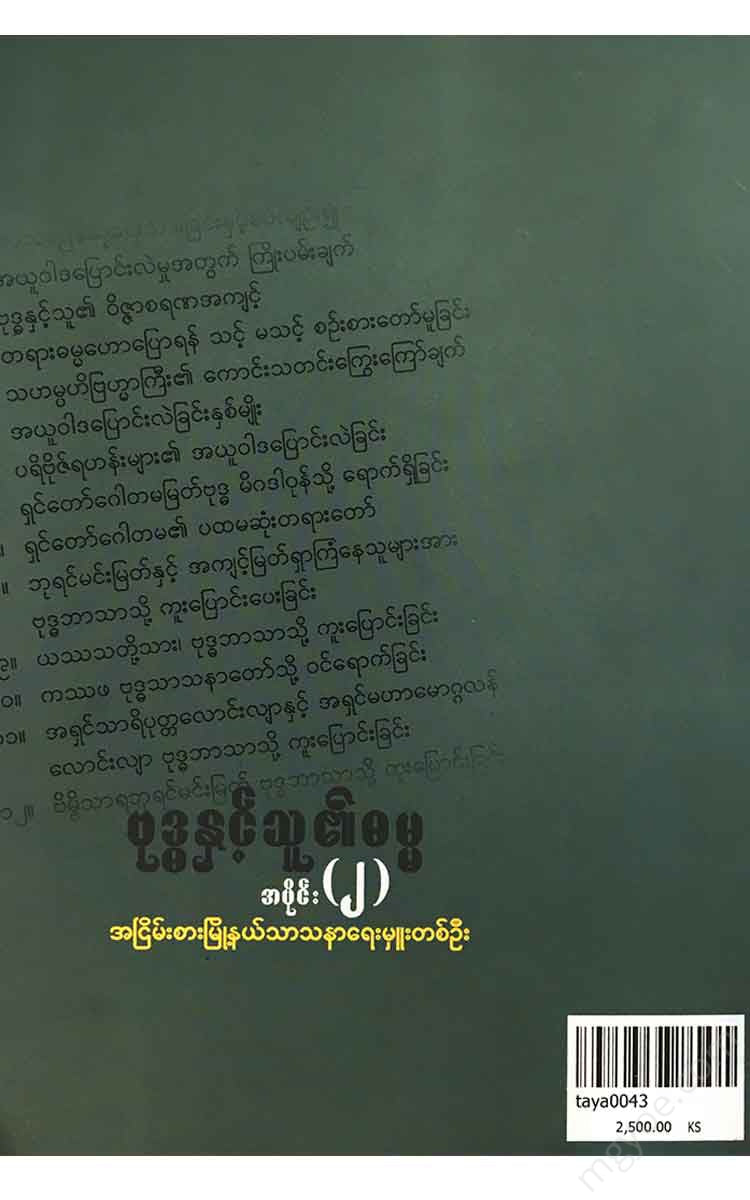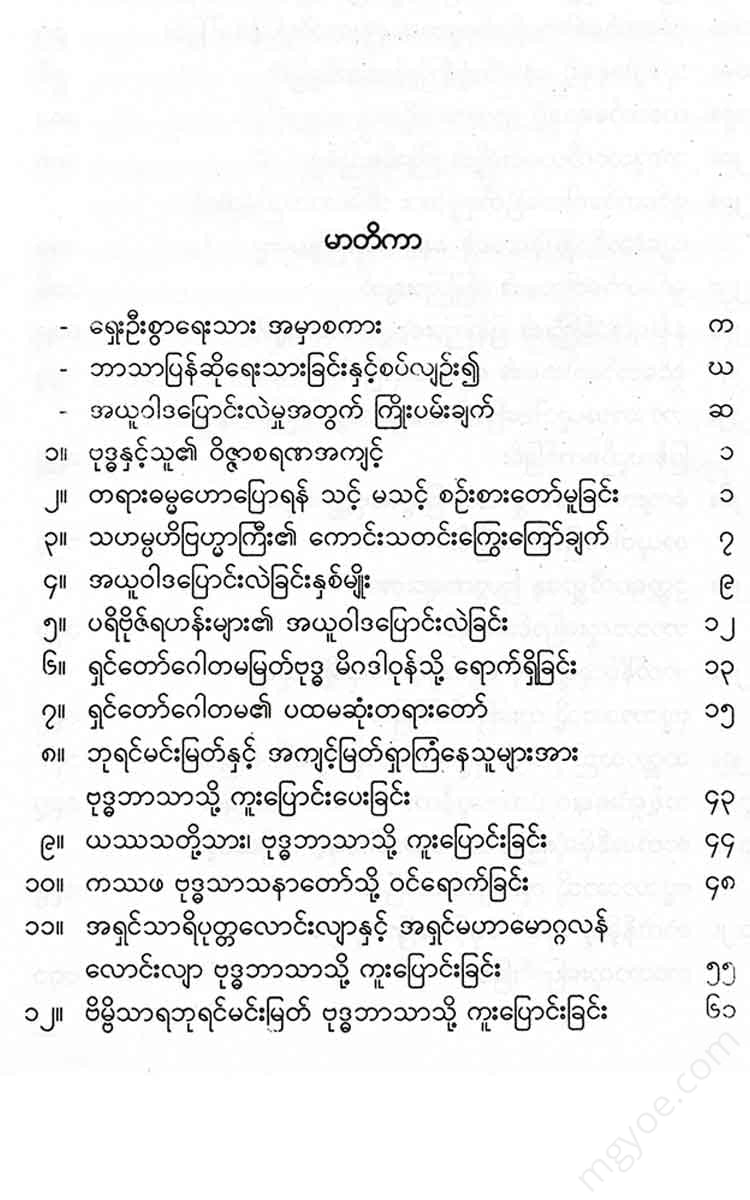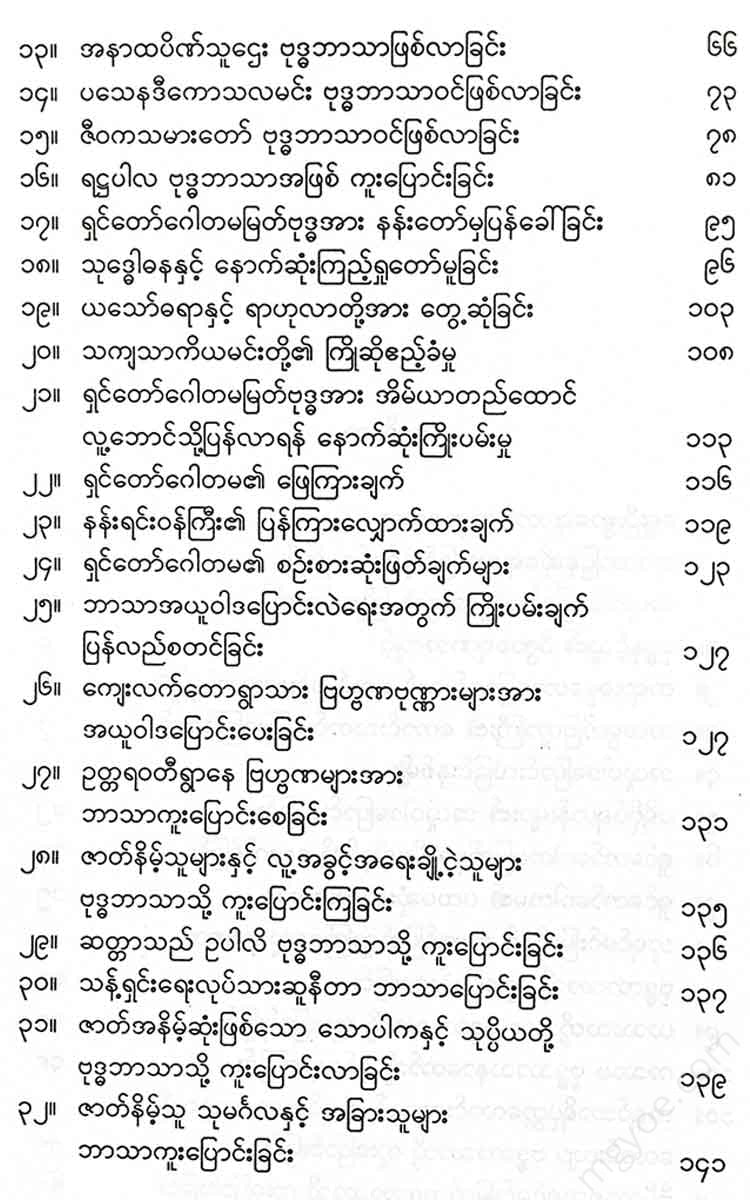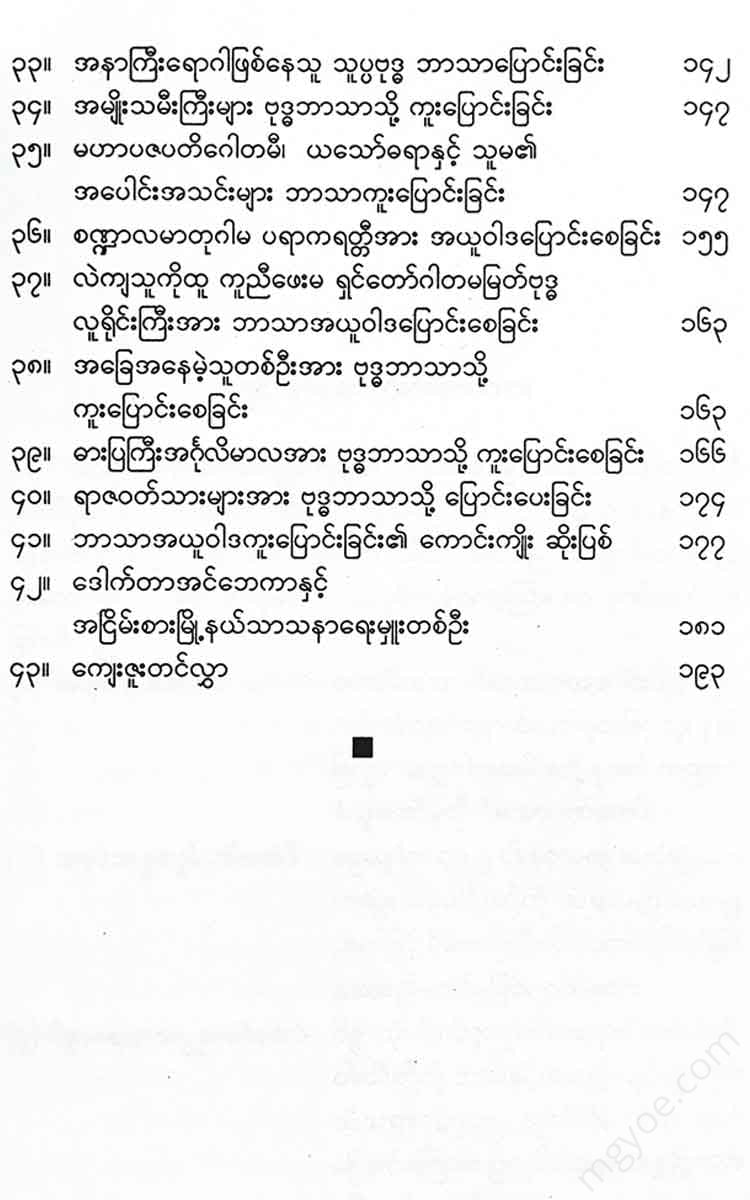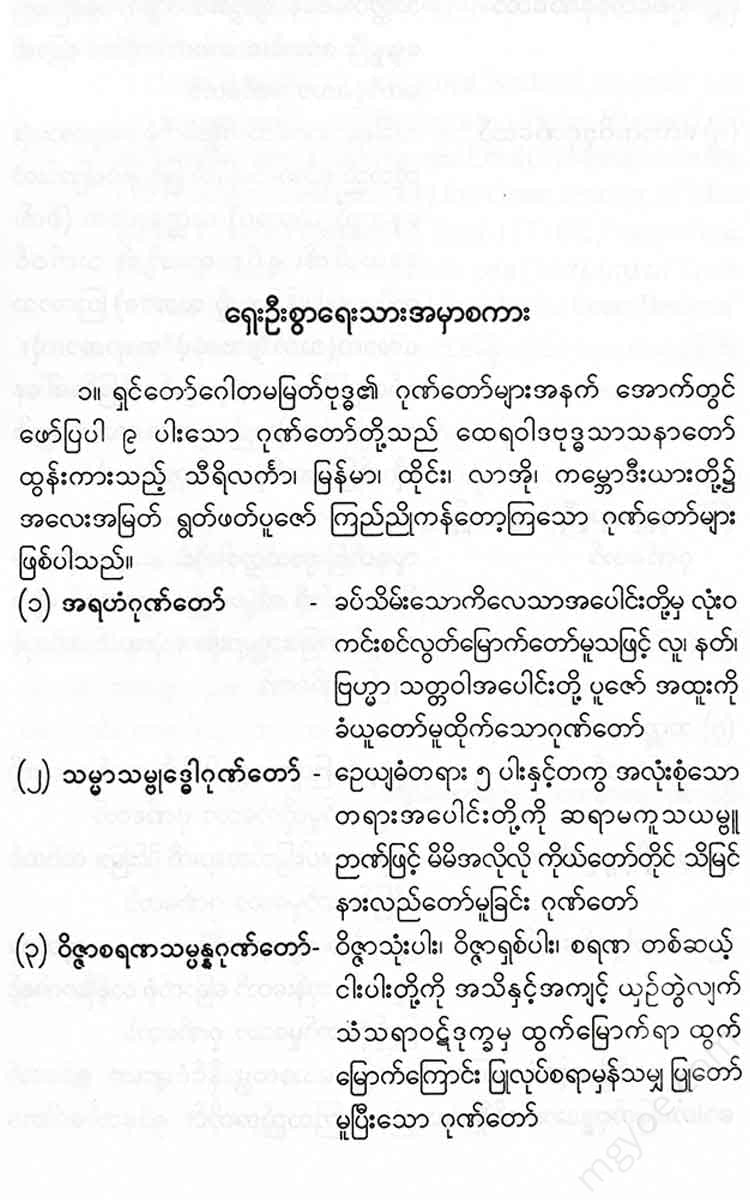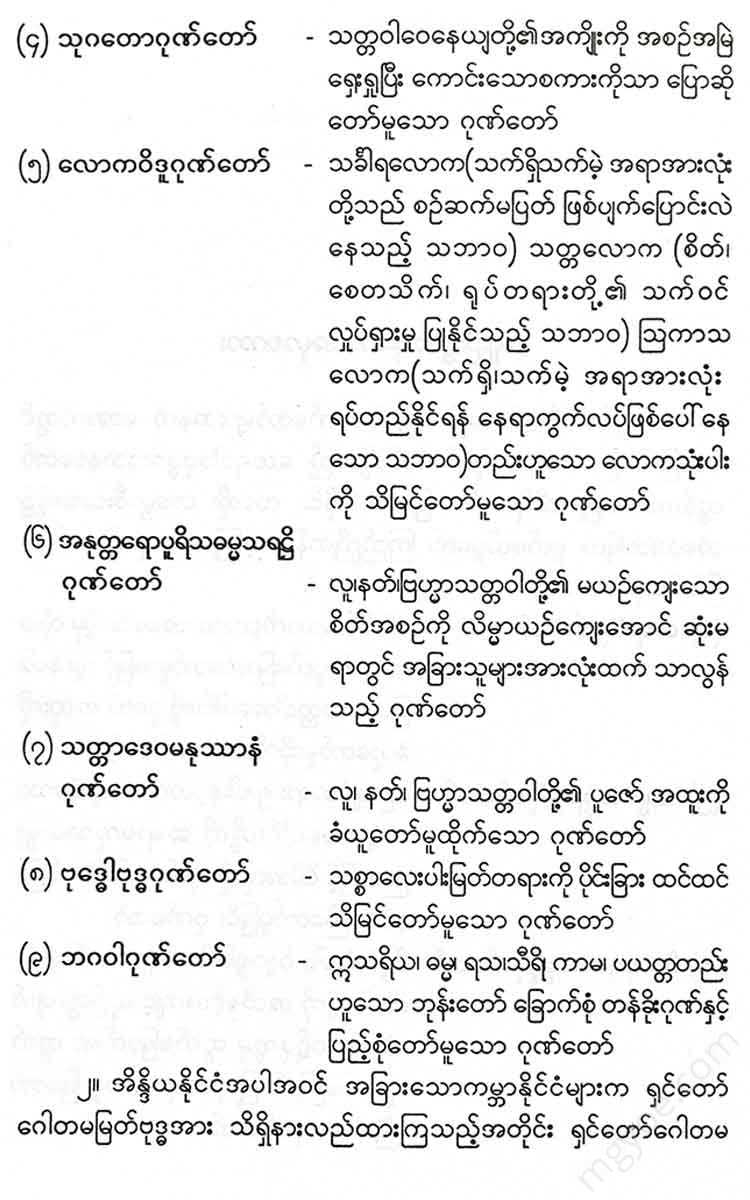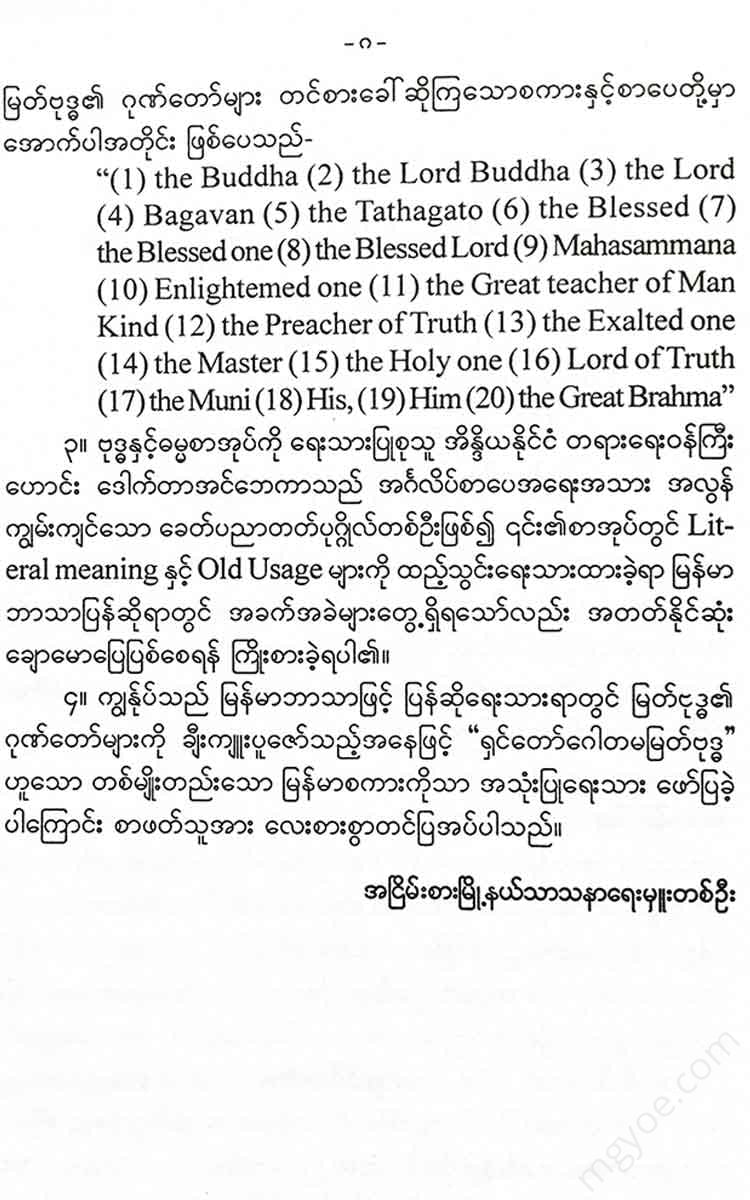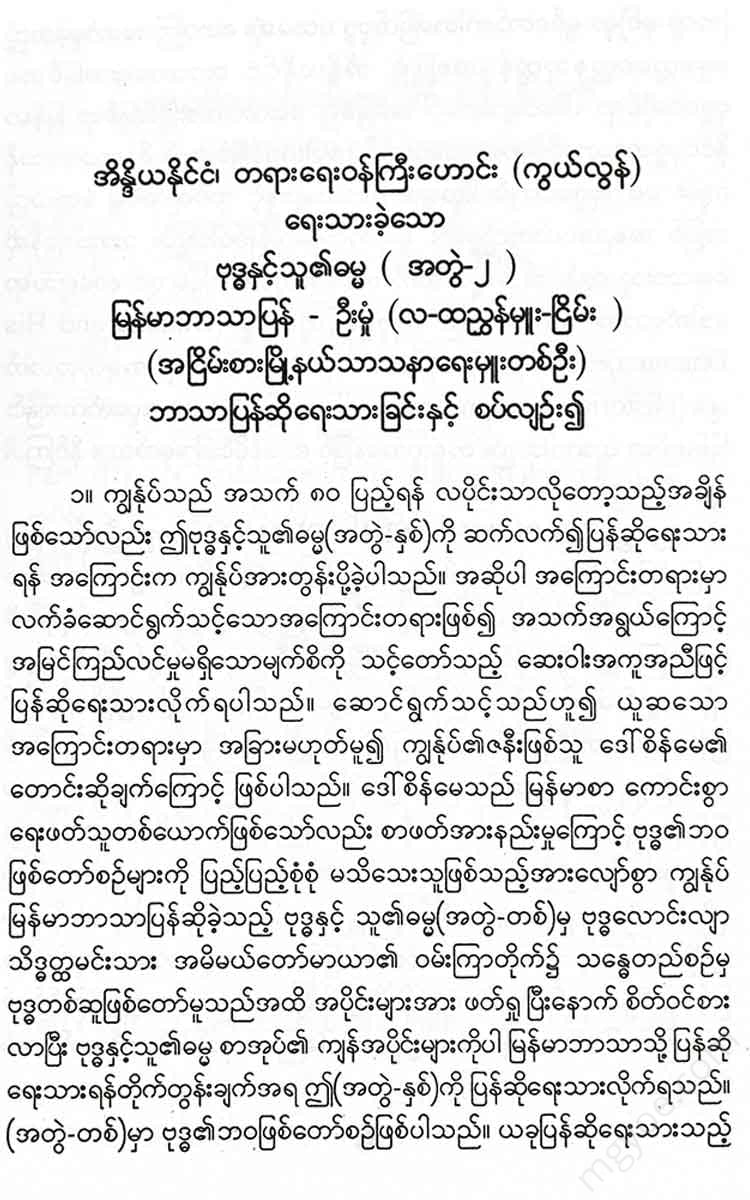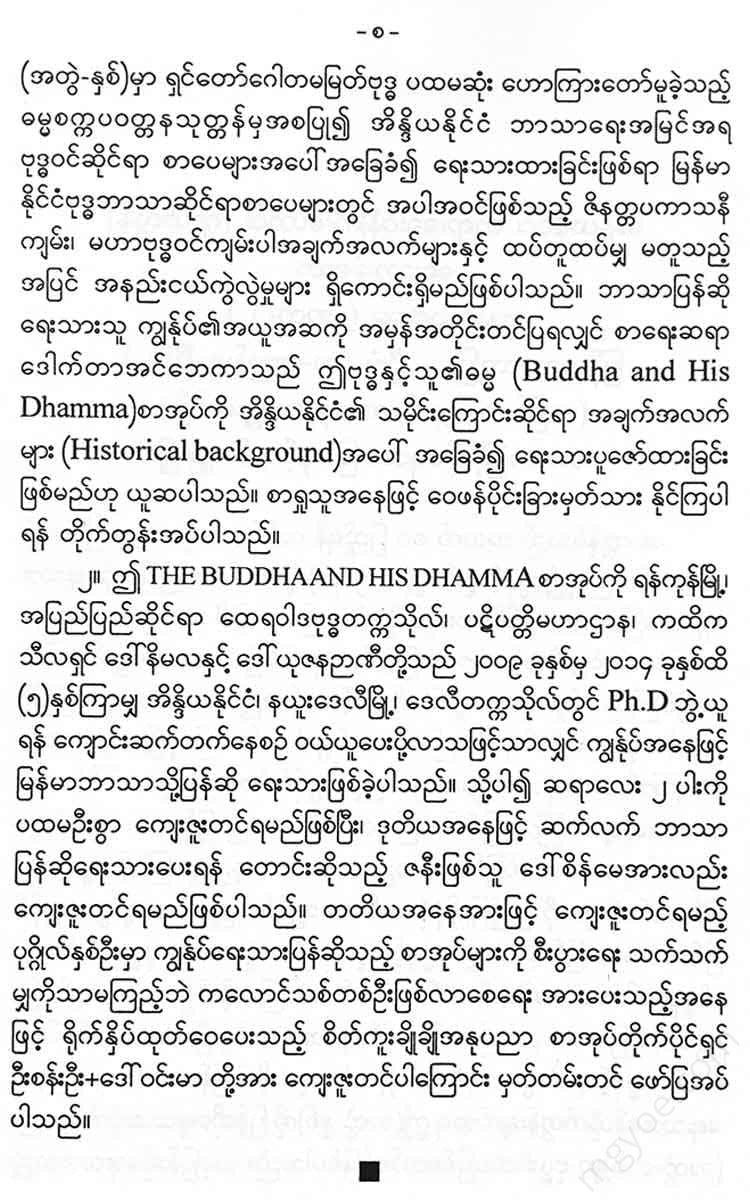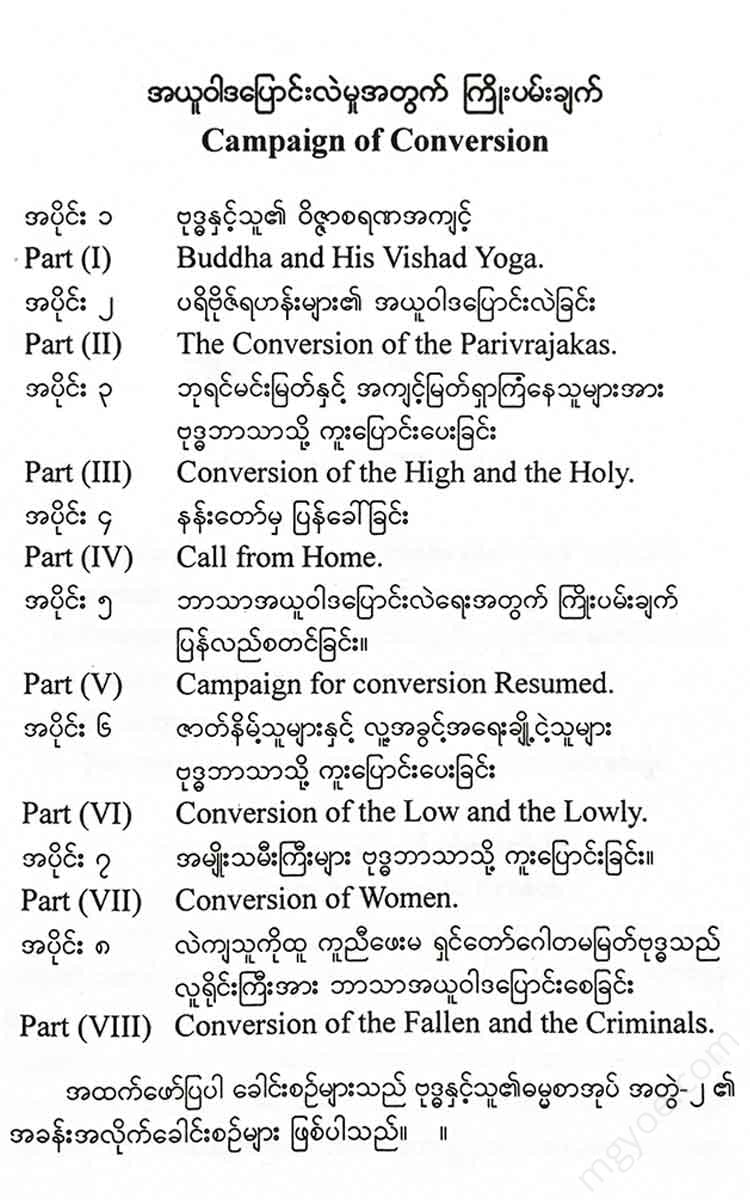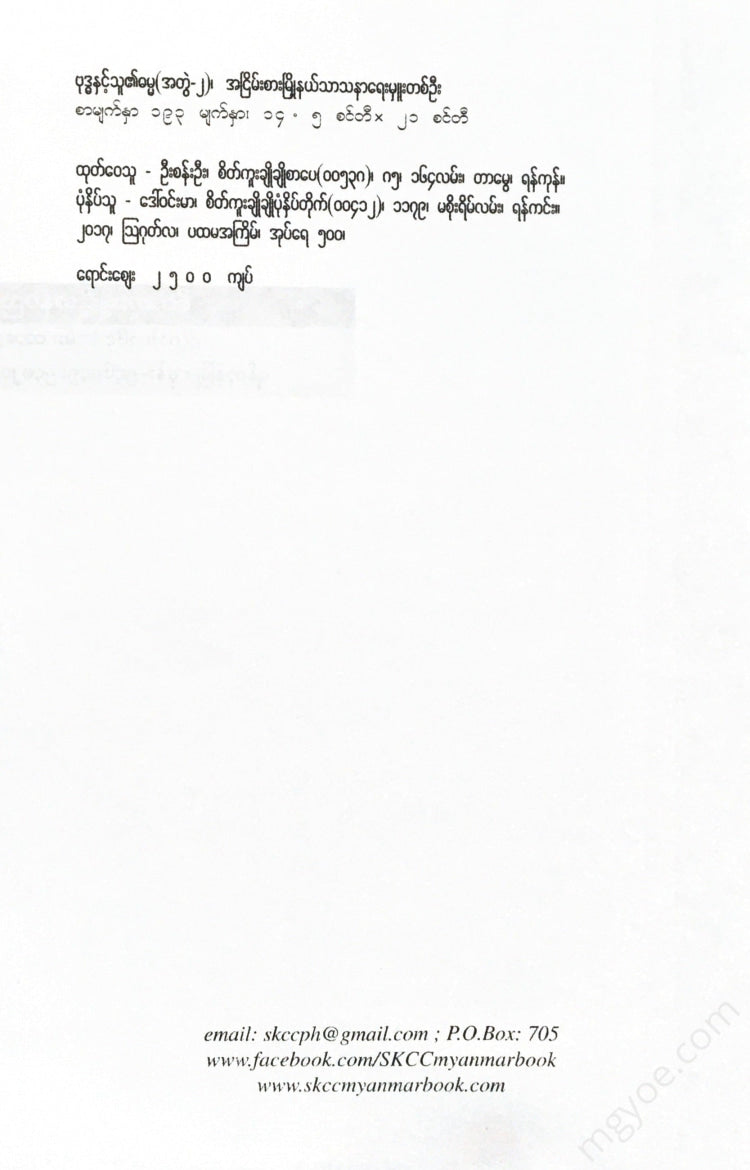စိတ်ကူးချိုချိုစာပေ
A Retired Township Missionary - Buddha and His Dhamma Part 2
A Retired Township Missionary - Buddha and His Dhamma Part 2
Couldn't load pickup availability
Part (1)
The Buddha and his practice of seeking refuge in the Buddha's wisdom
PART I
Buddha and His Vishad Yoga
1. To preach or not to preach
2. Proclamation of good news by the great Brahma Sahampati
news by Bramha Sahampati.
3. Two types of Conversion
( 1) Whether or not it is appropriate to preach the Dhamma, considering it appropriate
(1) To Preach or Not to Preach
1. After the Buddha attained omniscience, attained Buddhahood, and shone forth the light of the Dhamma, he had a doubt in his mind that he was not yet fit to preach to all beings the Dhamma he had discovered through his own practice. He pondered whether he should preach to all beings the Dhamma of peace that he had discovered, or whether he should practice and develop it himself.
2. He said to himself, "That is true. I have received a new light of Dhamma. But will ordinary people be able to understand and accept such a difficult and profound Dhamma? This Dhamma is something that only wise people can understand." He thought to himself.
3. It is a very difficult task to abandon the belief that there is an almighty God and that there is a soul and a spirit, which are prevalent in human society. Similarly, it is especially difficult to abandon the idea of praying, worshipping, and performing rituals.
4. “It is extremely difficult to abandon the idea that the soul of a human being is eternal and that even after death, the soul never dies and moves from one life to another, and from one life to the next, and to accept and believe in the doctrine of anatma that I preach, and to abandon the false view that the soul exists after death.”
5. “Human beings are creatures who put their ego and selfish ideas first and are only happy with their own benefits. The teachings of the Buddha on getting rid of the unnecessary ego and practicing righteousness are very difficult for them to accept and believe.”
6. "If I were to preach and instruct the Buddha's teachings, but human beings would not understand them and would not accept them. My teachings would be only a blessing. They would be useless and useless."
7. “Why can’t I, the Buddha, live the life of a monk, withdrawing from the world and practicing the Four Noble Truths that I myself have discovered? ” Gautama Buddha asked himself. “I myself will live the rest of my life by practicing good deeds.”
8. After reflecting on this, the Buddha decided not to preach the Four Noble Truths.
9. Brahma Sahampati, who understood the decision that was arising in the mind of the Buddha not to preach the Four Noble Truths to beings , thought, “If the Tathagata, the fully enlightened, had not preached these Four Noble Truths to beings, this world would have been in great confusion and would have been utterly lost. It would have suffered great destruction.”
10. The great Brahma Sahampati, filled with anxiety in his mind , left the Brahma World and immediately came before the Buddha. Then, placing his robe on one shoulder, folded his arms, and bowed down to the Buddha, he said to the Buddha, “You are no longer Siddhartha Gautama. You have become a true Buddha. You have fully attained the golden wisdom of omniscience and are able to give the cool water of the Dhamma to all beings. You are the Tathagata Buddha. Why should I not illuminate the world with the light of wisdom ?
11. “Many beings, troubled and troubled, whose minds are not pure and pure, have died without hearing or understanding the Four Noble Truths: suffering, the origin of suffering, the cessation of suffering, and the path to liberation.”
12. The great Brahma continued, “As reflected in the wisdom of the Lord Gautama Buddha, in ancient times, many complex and incorrect doctrines prevailed among the great Brahmin people.”
13. "Venerable Gautama Buddha, will you not open the door to the correct doctrine for this erroneous belief in eternal existence? "
14. O Buddha, whose wisdom is incomparable, and who sees everything, just as a person standing on a mountain can see all those around him, so you see the great suffering that many sentient beings experience, namely birth, old age, death, and the like. Having passed over to the other side of samsara, having been freed from all the mental suffering that causes worry and lamentation, O Buddha, having compassion on the sentient beings who are adrift in the current of samsara, illuminate them with the light of wisdom and knowledge, and guide them through the darkness of greed, anger, and delusion.”
15. O brave and courageous warrior who has successfully fought against the enemy of defilements, O brave and courageous leader who has successfully steered the ship that is heading towards Nibbana, having paid the debt of suffering and freed from the bonds of samsara! Arise, take pity on the world and give us the cool and refreshing medicine of the Dhamma.”
16. “May you be filled with love and compassion and have mercy on us. May you pour out the cool, refreshing water of the Dhamma for all beings, both human and divine.”
17. “Oh Brahma, whose conduct is most excellent and worthy of respect in the human world! If I have not preached the truth to all beings as you have requested, the reason will be because of the fear of the poets,” replied the Gautama Buddha.
( Translator's note - The meaning of the word Brahma needs to be carefully considered by the readers. My idea is that if I were to present it, it would be a term that refers to the Brahmin people, who are among the four castes in India, during the long journey of the cycle of life, where beings roam around , assuming that there are 1 human world + 6 celestial realms + 20 Brahmas + 4 apa realms, totaling 31 realms.)
18. When the Buddha realized the suffering of the worldly beings, the suffering of the worldly beings, he realized that his decision to remain a recluse (Asasanyasi) and watch without responding to the enemies of the defilements was wrong.
19. The Buddha saw that asceticism, the view of one's body as something to be despised and loathed, was useless. Such a view was of no use in escaping the bondage of samsara. No one who practiced asceticism, the view that his body, no matter how long or how wide, was nothing but a mere corpse, had ever transcended the world and attained the transcendental bliss. He understood what was necessary to transcend worldly happiness and attain the transcendental bliss. He understood what was necessary to transform the worldly world, the human world, into a better state.
20. Why did the Buddha withdraw from the worldly world? It was because there were so many conflicts between people in the world that caused sorrow, lamentation, and frustration, and there was no cure. If only he could have preached the Four Noble Truths to all beings, and taught them the truth, he would have realized his duty to return to the world and to heal the suffering and pain of the world, and he would have remembered to teach the Dhamma to all beings, instead of remaining a monk in the Ekasari forest.
21. For this reason, Gautama Buddha accepted the request of Sahampati Brahma and decided to preach the Four Noble Truths.
